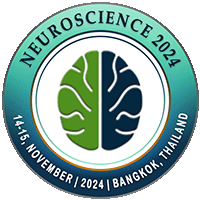
Pascale Leick
Clinical Psychologist, FranceTitle: Why adopt when you have biological descent and why adopt ostensibly by “choosing” a child from a country in Black Africa?
Abstract
Five socio-culturally homogeneous couples were recruited to examine with them their motivations relative to the family context in which they decided to adopt. Our objective is not to lend ourselves to a statistical analysis, but to observe "a piece of reality" in an idiographic approach to extract theoretical knowledge. The approach of the non-directive clinical interview seemed to us to be the most appropriate for our project. And since adoption involves not only individuals, but also couples, we spoke individually with each member of the couple, then with the couple.
From the analysis of the data, it emerges that the adoption is enunciatively represented on the stage of the discourse as a joint act which comes to "repair" and go beyond an individual filiation that the members of the couple have each on their side experienced as painful. It is for each of them, to restore an ascending and descending genealogical line experienced as disappointing and frustrating. Since biological children have not succeeded in filling parental gaps, but rather in revealing them, the child resulting from international adoption (the desire for a child of black color emerges in the discourse of the majority of adopters) appears for the adopters included in this research, such as the one supposed to be able to repair everything (the individual, the conjugal-parental couple, the genealogical line) and fill everything (their narcissistic flaws), no other child being fantasized in front of this one . Everything happens as if there were a need to cross-breed the line to break the repetition of disappointing and/or painful relationships.
Just as the arrival of a brother and a sister disrupts the original siblings, the arrival of a child by adoption whose age is not clearly defined, upsets the chronological arrangement of the descendants. . While during a biological pregnancy the child participates visually and tactilely in the bodily transformation of the mother, the biological child of future adopters is not really involved in the approval procedure, nor in this expectation, given difficulty predicting the child's arrival.
So how do you become the brother or sister of a child of color aged four or more whose arrival in the family generates particular family dynamics in which they are involved in spite of themselves?.
Our approach is intended to contribute to raising awareness among professionals selecting candidates for adoption so that they take into account the feelings of the original siblings as soon as they apply for approval. Indeed, we wonder about the consequences of this singular adoption on the identity construction and self-esteem of the members of the biological siblings and on the influence of these fraternal bonds in the development of their future parental position.
Biography
Pascale Leick obtained her Doctor of Psychology degree at the University of Lorraine (France). Since that day, she have been attached to the InterPsy laboratory (EA 4432) of the STANISLAS doctoral school. She published her research work focusing on the non-conscious motivations that lead a couple with biological descent to move towards international adoption, in the journal Neuropsychiatrie de l'Enfance et de l'Adolescence. She worked for more than 10 years in a prison environment in a service for prisoners / patients with psychiatric pathologies, as a clinical psychologist. At the same time, she worked for 35 years in structures welcoming children and adolescents with autism spectrum disorders, mental and intellectual disabilities, etc. To date she devote herself to her liberal activity in her office, where she welcome children, adolescents and adults in a systemic approach to the singular problem of each of my patients.

